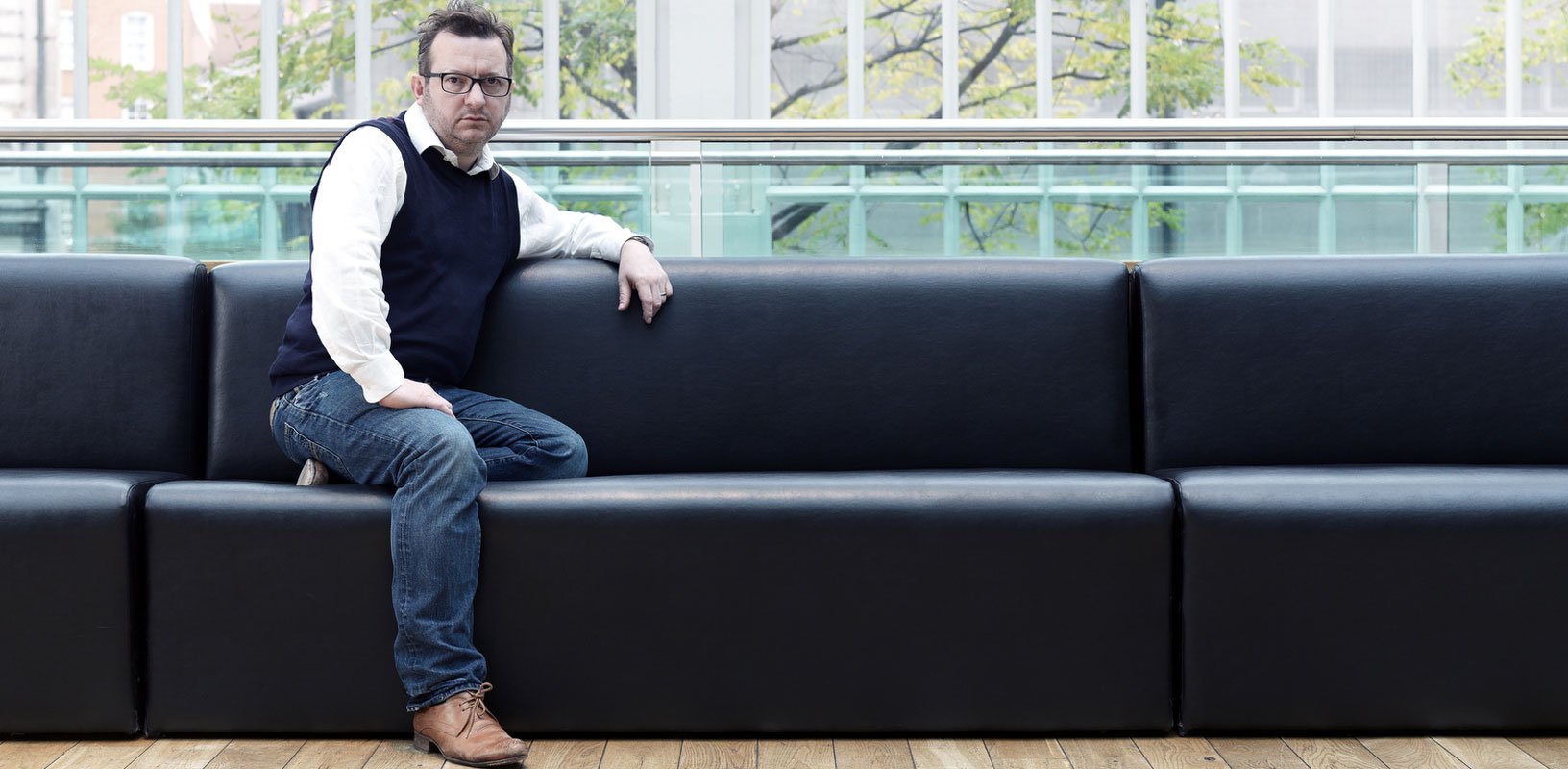Mark-Anthony Turnage: interview introducing Coraline

Mark-Anthony Turnage introduces his new operatic adaptation of Neil Gaiman’s Coraline, premiered by The Royal Opera at the Barbican Theatre in March, before travelling to Lille, Freiburg, Stockholm and Melbourne.
How did you first come across Coraline?
I was having a lot of back and forth with The Royal Opera on ideas for a new stagework but it was proving difficult to find something suitable from all perspectives. Then someone suggested Neil Gaiman’s Coraline which I’d never read. I was immediately impressed by the mystery and darkness expressed so imaginatively in the story. Gaiman is a real craftsman and the novel was instantly appealing to me.
What made you think it would be ideal to transform into an opera?
Once the choice of book was approved by everyone I just wanted to get going. A key factor was that the characters in the story are all very different, which is a crucial starting point when adapting something for music. I also liked the variety of moods and the contradictions in the story – this is a good basis for different colours and musical ideas. The idea of a seductive alternative reality that is increasingly scary is very interesting psychologically, allowing me to explore situations, ideas and emotions through my music. Also, crucially, this is an important story in having a female lead – for me Coraline is a fantastic role model.
Did you have an idea early on about the age of your audience?
The book was written for children aged 9+, so initial ideas were that the opera should be aimed at the same group. Once into the piece I realised the opera needed to be entertaining, interesting and hopefully enjoyable for a wider range. I became less fixated on the exact age of the audience and rather invested my faith in Gaiman’s novel and his unsurpassable ability to write for children. It’s important to remember that youngsters and their parents will experience the story differently. Kids will see it as an exciting adventure that can trigger their imaginations whereas adults may also respond to the darker, complex threads and some of the ironic humour in the text.
How did you reduce and adapt the book into a two act opera?
My librettist Rory Mullarkey took on this challenging task. Inevitably a lot had to be trimmed back and I regret losing some of the plot details and the character of the cat who is a guardian for Coraline across both worlds. On the other hand, some things needed to be expanded to flesh out character and make full use of the cast of eight, such as the trio of Ghost Children which provided me with the opportunity for ensemble singing and for an inner voice warning Coraline of the dangers beyond the locked door.
Were there particular scenes that gave you early ideas for setting to music?
My approach is usually to start at the beginning and work through in order, so I didn’t sketch out any specific scenes in advance. However Coraline’s neighbours did leap off the page onto the stage: I knew that I wanted to exaggerate the theatricality of Miss Spink and Miss Forcible and really broaden their characters through the music. I also jumped on the nationality of Bobo and made an attempt to emulate his Lithuanian roots as well as find a soundworld for his mouse orchestra.
In musical terms how did you create the parallel world for the Other Mother on the other side of the door?
Broadly speaking, the Other universe is a variation on reality. It's distorted and extreme, and hopefully very creepy, but we'll have to wait and see what comes across on stage. I am thrilled that Aletta Collins is directing this piece and can't think of anyone better to grab together all of these themes and build what I am certain will be a compelling and exciting production.
What is the overriding message of Coraline and her journey to self-discovery?
The message for me is that Coraline is determined to do what she thinks is right, even if she has to confront her fears. If we look at events in the world I see the same courage in people speaking out through the #metoo campaign. I realise now, perhaps more than I did at the time of writing Coraline, that the message that we mustn't ignore or forget is captured by Gaiman in his Introduction to the book: "being brave doesn't mean you aren't scared. Being brave means you are scared, really scared, badly scared, and you do the right thing anyway." There is a prelude to the story which perhaps I should have included in the opera. It's a quote from G.K. Chesterton and is a vital message that we could encourage our children to engage with: "Fairy tales are more than true; not because they tell us that dragons exist, but because they tell us that dragons can be beaten."
Interviewed by David Allenby, 2018
Mark-Anthony Turnage
Coraline
(2015-17) 90’
Opera in two acts (for family audience)
for 8 singers and chamber orchestra
Libretto by Rory Mullarkey, based on the novella by Neil Gaiman
Commissioned by The Royal Opera (London), Opéra de Lille, Theater Freiburg, Folkoperan (Stockholm) and Victorian Opera (Melbourne)
29 March – 7 April 2018
Barbican Theatre, London
The Royal Opera/Britten Sinfonia
Director: Aletta Collins
Conductor: Sian Edwards
> Visit the Barbican website
> Weitere Informationen zum Werk: Coraline
Photo: Philip Gatward
